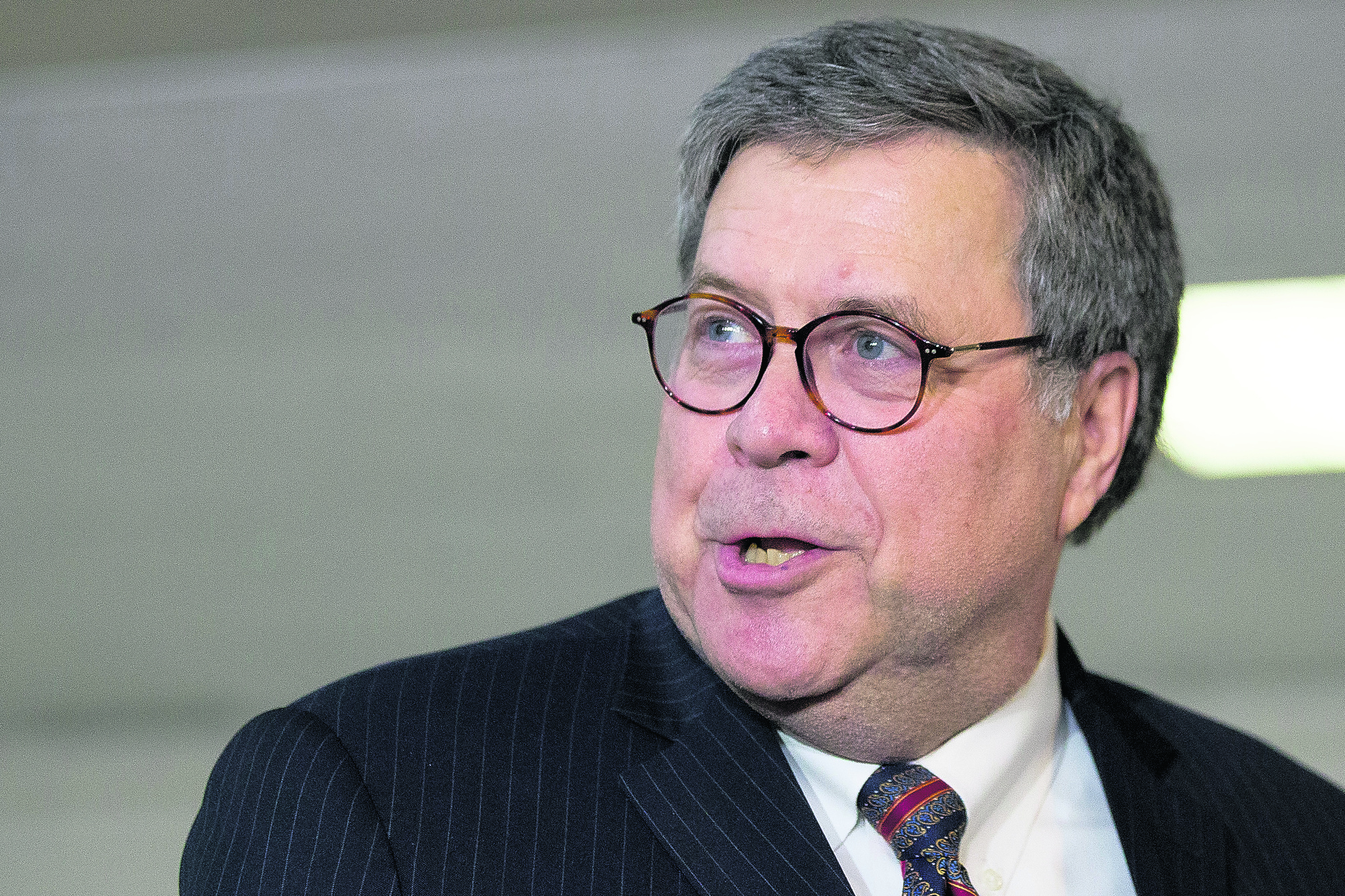
President Donald Trump’s nominee for attorney general will tell senators “it is vitally important” that special counsel Robert Mueller be allowed to complete his Russia investigation, and said he believes Congress and the public should learn the results, according to remarks prepared for his confirmation hearing.
William Barr also insisted in testimony he’ll deliver Tuesday to the Senate Judiciary Committee that Trump never sought any promises, assurances or commitments before selecting him to be the country’s chief law enforcement officer. In releasing written testimony ahead of his hearing, the Justice Department moved to pre-empt the most significant questions Barr is likely to face from Democrats on the panel — including whether he can oversee without bias or interference the final stages of Mueller’s probe into potential ties between Russia and the 2016 Trump campaign, and whether he will permit the findings to be made public.
“I believe it is in the best interest of everyone — the President, Congress, and, most importantly, the American people — that this matter be resolved by allowing the Special Counsel to complete his work,” Barr said. He described Mueller, a former Justice Department colleague, as a friend he has known personally and professionally for 30 years. Mueller headed the department’s criminal division while Barr served as attorney general from 1991 to 1993. The special counsel is required to confidentially report his findings to the Justice Department. Barr stopped short of directly pledging to release Mueller’s conclusions, but he expressed general support for disclosing the findings, whatever they may be.
“For that reason, my goal will be to provide as much transparency as I can consistent with the law,” Barr said. “I can assure you that, where judgments are to be made by me, I will make those judgments based solely on the law and will let no personal, political, or other improper interests influence my decisions.” The remarks in support of Mueller are intended to reassure Democratic senators troubled by Barr’s past comments on the special counsel’s probe, including an unsolicited memo he sent the Justice Department last year criticizing the inquiry into whether the president had obstructed justice. He also previously said the president’s firing of FBI director James Comey was appropriate and that the Mueller prosecution team, repeatedly criticized by Trump for including prosecutors who have made political stances to Democratic candidates, should have had more “balance.”
Those stances raised alarms that Barr could stifle the investigation as it reaches its final stages or make decisions that protect the president. Among the questions an attorney general might have to confront would be whether to approve a subpoena for Trump if he refuses to answer additional questions from investigators, and whether to disclose to Congress whatever report or conclusions Mueller turns in.
Barr, who also moved to quell concerns during private meetings last week with lawmakers, insisted that Trump had “sought no assurances, promises, or commitments from me of any kind, either express or implied, and I have not given him any, other than that I would run the Department with professionalism and integrity.”
“As Attorney General, my allegiance will be to the rule of law, the Constitution, and the American people,” Barr said. “That is how it should be. That is how it must be. And, if you confirm me, that is how it will be, and I have not given him any, other than that I would run the Department with professionalism and integrity.”
The mere fact that Barr felt compelled to deny any sort of commitment or pledge to Trump reflects the delicate and unusual circumstance he finds himself in. He would serve a president who requested loyalty from an FBI director he later fired and who berated — and eventually forced out — his first attorney general, Jeff Sessions, for recusing himself from the Russia investigation. Barr’s supervisory role in the Russia probe may be especially important since Deputy Attorney General Rod Rosenstein, who appointed Mueller and has overseen his day-to-day work, expects to leave the Justice Department soon after Barr is confirmed. It is not clear how much of the investigation will be left by then.
Barr would replace acting Attorney General Matthew Whitaker, who declined to recuse himself from the investigation — despite the advice of a Justice Department ethics official and calls from Democrats who cited Whitaker’s past critical comments on the probe. Barr’s June memo to top Justice Department officials criticized as “fatally misconceived” the theory of obstruction that Mueller appeared to be pursuing. He said presidents cannot be criminally investigated for actions they are permitted to take under the Constitution, such as firing officials who work for them, just because of a subjective determination that they may have had a corrupt state of mind. Justice Department spokeswoman Kerri Kupec has said Barr wrote the memo on his own initiative and relying only on publicly available information. She said senior ethics officials were consulted about the memo and have advised that it presents no conflict of interest to Barr’s work as attorney general.
In his prepared remarks, Barr said the memo was narrowly focused on a single theory of obstruction that media reports suggested Mueller might be considering. Barr said he wrote it himself “as a former Attorney General who has often weighed in on legal issues of public importance.”
“The memo did not address – or in any way question – the Special Counsel’s core investigation into Russian interference in the 2016 election,” Barr said.
___
Associated Press writer Michel Balsamo in Washington contributed to this report.
Read Barr’s prepared testimony: http://apne.ws/x87UoUn
By ERIC TUCKER
Associated Press



















